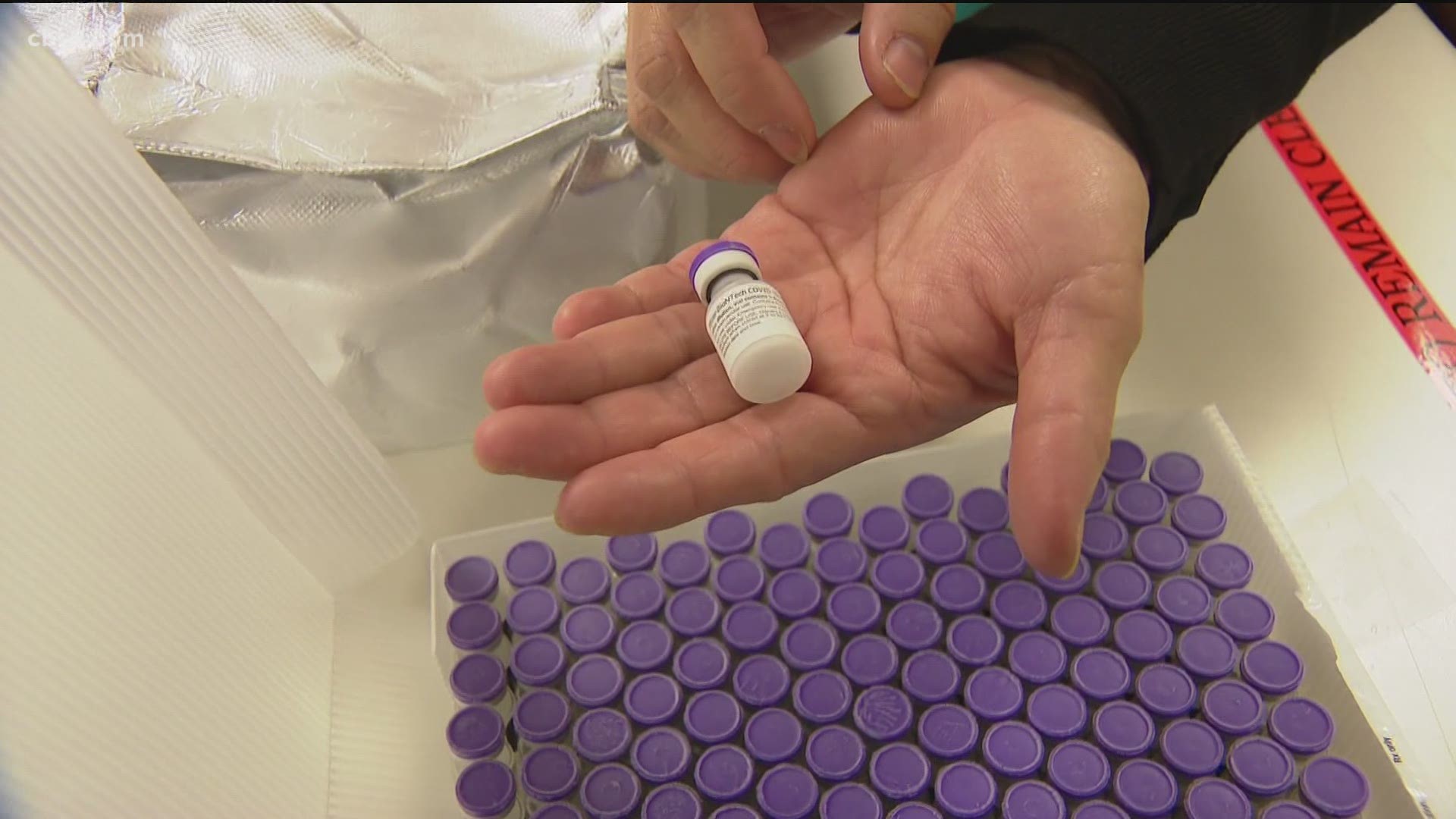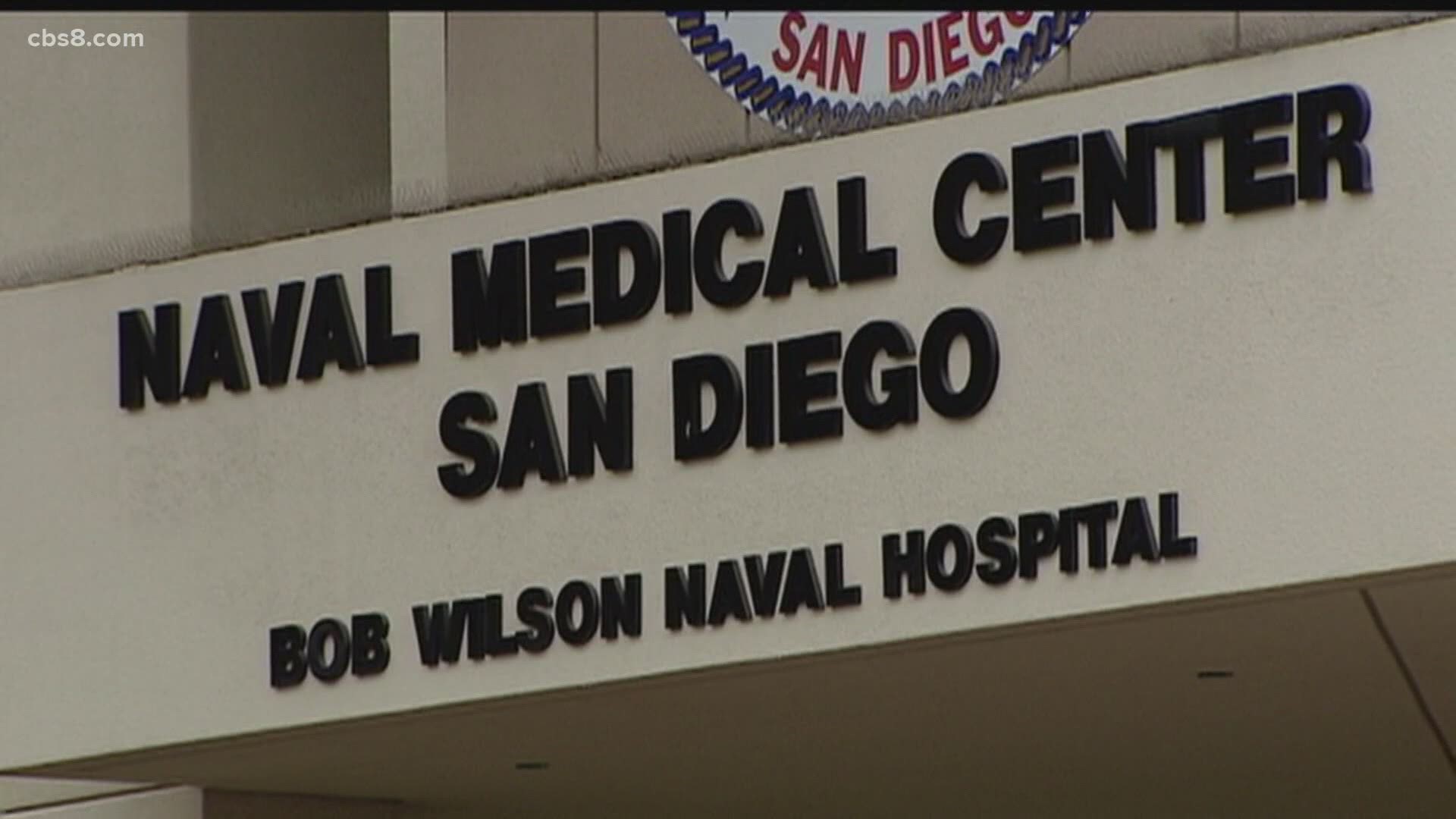SAN DIEGO — San Diego hospitals expect to receive their first allotment of Pfizer’s coronavirus vaccine Tuesday. Several vials arrived in San Diego County early Monday morning aboard a FedEx plane.
The vaccine will be stored at a county facility, UC San Diego Medical Center in Hillcrest and Rady Children’s Hospital because they have ultra-cold freezers. Employees may begin to receive them as early as Tuesday afternoon although it depends on how long it takes to complete the required documentation. Each vial is being closely tracked and staff must sign consent forms.
Generally, hospitals will prioritize those who work in the emergency department, intensive care unit, and COVID-19 units. UC San Diego will also vaccinate staff in the cardiac unit because those patients often require urgent care before the results of a coronavirus test are returned.
“It's not just one role or the other. It's everybody in the emergency department. So, physicians, nurses, people cleaning the rooms, the techs, the radiologists, the pharmacists, we want that whole community,” said Shira Abeles, M.D., an infectious disease specialist at U.C. San Diego Health and a member of the hospital’s COVID-19 task force.
U.C. San Diego expects to initially receive one vaccine box, which contains enough vials for 2,975 doses. The process of thawing a vial and preparing to give doses can take hours. The hospital expects to vaccinate “several hundred” staff members a day in Hillcrest and then the Jacobs Medical Center in La Jolla. All will require a second dose in three weeks. Both facilities have ultra-cold storage capacity.
It will rotate staff members from different departments each day and will try to avoid vaccinating too many from any single department because of the potential for side effects that could cause some employees to call out sick.
“You may feel fatigued the next day. You may have a fever the next day,” said Abeles, who added side effects usually last only 24-48 hours.
Neither Rady Children’s nor UC San Diego are mandating staff take the vaccine. Both said a “majority” of employees have expressed a willingness to take it. Some staff members expressed hesitation because of how quickly the vaccine was approved and how new it is to the market.
“I think, as this evolves, there'll be more education but it's just a matter that there wasn't a lot of knowledge up until very recently. Now there's a lot of knowledge, that things are moving very quickly, which is all very good, but it means that this will be an evolving process and we're going to have to continually do outreach over the next few weeks and months,” said Abeles.
Staff who initially decline the Pfizer vaccine will have other opportunities to take it or vaccines from other manufacturers in the future.
Prime Healthcare Services, which owns Alvarado Hospital and Paradise Valley Hospital told News 8 it expects to receive 325 doses. Most will go to its National City facility, but it is still working on logistics.
Scripps Health expects to begin vaccinating staff on Thursday and did not say how many doses it will get.
Sharp, Palomar, and Tri-City Medical Center said they are still waiting for information on when their initial allotment of vaccines will arrive.
Pfizer’s vaccine, which requires ultra-cold freezers, presents a logistical challenge for smaller hospitals. The freezers are typically only used in research facilities. Some hospitals have ordered new freezers, while others will take smaller shipments that are kept cold with dry ice. Some vaccines by other manufacturers, such as Moderna, require refrigeration in freezers that are more universally used in hospitals.
Rady Children’s Hospital, which is planning to receive an unknown number of vaccines Tuesday, said it will also prioritize staff most likely to come in contact with COVID-19 patients.
The county’s initial allocation of 28,275 doses is enough to vaccinate 72% of San Diego’s 39,000 healthcare workers. Future shipments that are expected over the next few weeks will be used to vaccinate remaining staff and then residents and staff of residential long-term care facilities by January.
There may not be enough vaccines for the general public until late Spring.
“This is the first time in the past seven months we actually have a very proactive way of being able to combat COVID-19. We’ve been very reactive,” said Nicholas Holmes, M.D., Chief Operating Officer at Rady Children’s. “We’re incredibly proud to be the first part of this and be able to get the community prepared and treated and get them vaccinated.”


